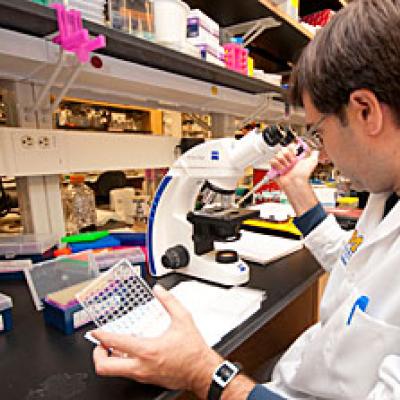Welcome to the Department of Molecular & Integrative Physiology. Within the welcoming, supportive and collaborative community in our department, we are pursuing answers to fundamental questions in physiology as well as the mechanisms of human diseases that occur when normal physiology is disrupted. While we are proud of our ranking as the #1 NIH funded physiology department in the country, we are prouder of the impact our scientists have on their fields through ground-breaking research, education, and service. Our academic and training programs for undergraduate and graduate (PhD and MS) students, and postdoctoral fellows are focused on developing future leaders in science and medicine through engaged mentorship and a strong focus on personalized career development.
We invite you to read the latest edition of our department newsletter "Physiology Matters"(link is external). Inside you will learn more about some of the wonderful people in our department and some of our most recent accomplishments.







